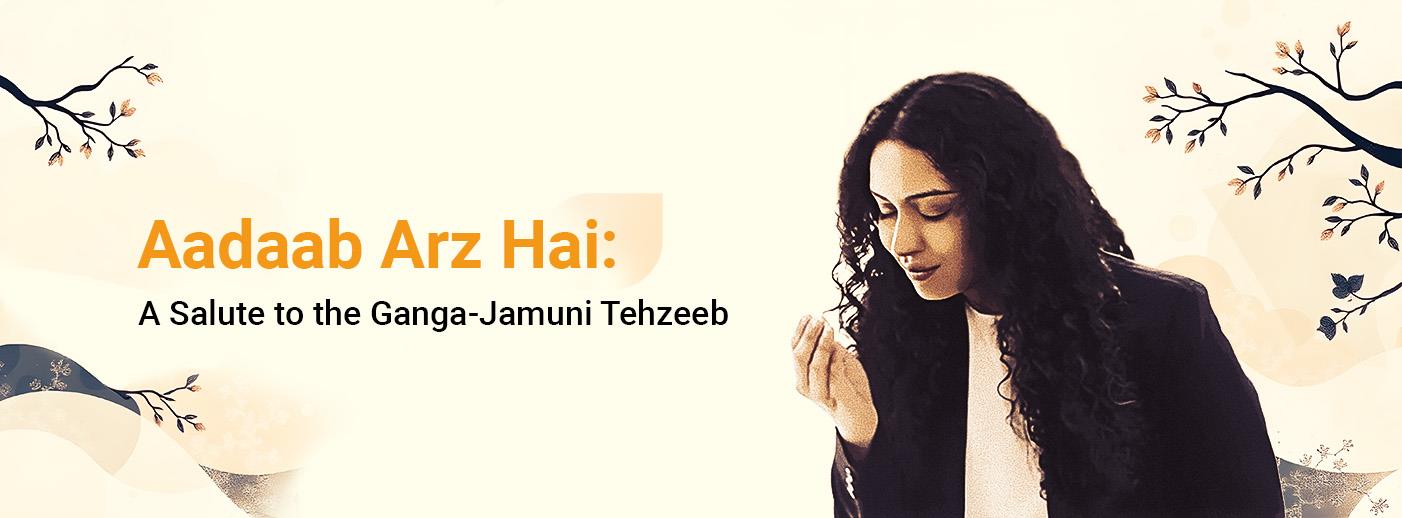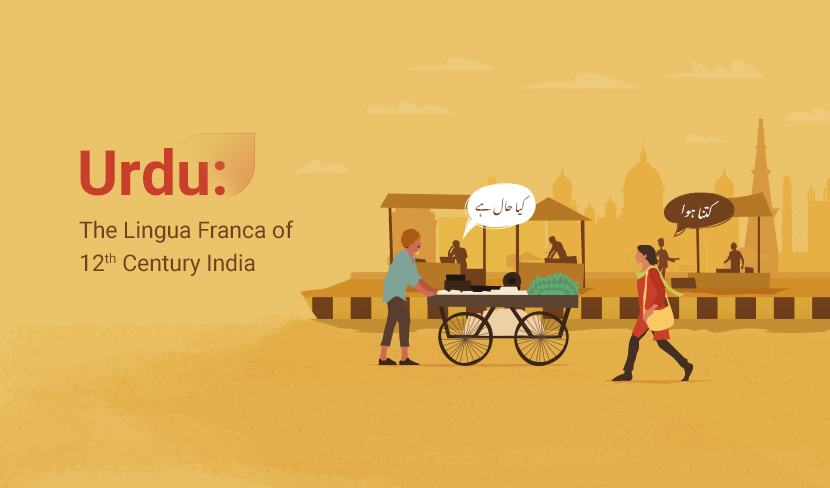زیادہ تلاش کیے گئے الفاظ
محفوظ شدہ الفاظ
کِھسیانی بِلّی کَھمبا نوچے
جسے غصہ آرہا ہو وہ دوسروں پر اپنی جھلاہٹ اتارتا ہے، بے بسی میں آدمی دوسروں پر غصہ اتارتا ہے، شرمندہ شخص دوسروں پر اپنی شرمندگی اتارتا ہے، کمزور کی جھنجھلاہٹ
چَمَنِسْتان
ایسا باغ جہاں پھول کثرت سے ہوں، ایسی جگہ جہاں دور تک پھول ہی پھول اور سبزہ سبزہ نظر آئے، گلزار، گلستان، باغ، پھولوں کا قطعہ، سبز کھیت
“Aadaab Arz Hai” – A Salute to the Ganga-Jamuni Tehzeeb

Aadaab arz hai. آداب عرض ہے
Two simple Urdu words, yet they carry within them centuries of culture, language, etiquette, and emotion.
This humble phrase is more than just a greeting — it's a living expression of India’s syncretic heritage, often referred to as the Ganga-Jamuni Tehzeeb.
Let’s explore the layered meanings behind this beautiful phrase and the traditions that surround it.
What Does “Aadaab Arz Hai” Mean?
The phrase breaks down into two parts:
• Aadaab – Derived from Arabic, it is the plural of Adab, meaning etiquette, courtesy, politeness. It also refers to literature.
• Arz (عرض) – An Arabic-origin word meaning to present, offer, or submit respectfully. In Urdu, it’s used to convey humility and reverence — “Arz hai” literally means “I present” or “I offer (with humility).”
Put together, “Aadaab Arz Hai” becomes a respectful and formal way of offering one’s greetings — once commonly spoken with a slight bow of the head, often accompanied by a graceful gesture of the hand.
A Greeting With Many Shades
Depending on the context and relationship, the phrase takes different forms:
• “Aadaab Arz Hai” – Used when greeting elders or those of higher status, said with a slight bow.
• “Aadaab Arz” – A more balanced version, used among equals.
• “Aadaab” – A simpler form, yet still rich in respect.
The Gesture: While saying Adaab, the right hand is brought to the forehead and one slightly bows. The deeper the bow, the more respect is shown.
The Art of Responding to Aadaab
Replying to Aadaab is a graceful tradition in itself:
• Elders or respected individuals often respond with a gentle nod — a subtle, dignified acknowledgment.
• Among peers, the response is usually “Aadaab” or “Aadaab Arz.”
• When a younger person greets an elder, they may receive a tailored blessing in return, such as:
o “Jeete raho” – May you live long
o For girls: “Allah naseeb achha kare” – May God bless you with a good destiny
o For boys: “Allah chaand si dulhan de” – May God bless you with a bride as lovely as the moon
o For married women: Blessings for a happy married life and children
These blessings are not just responses — they’re heartfelt wishes and a passing down of cultural grace.
A Touch of Humor and Custom
• When someone makes a false or exaggerated claim and is proven wrong, people may sarcastically say “Aadaab Arz Hai”, bowing slightly with a hand to the forehead.
• If an elder gives a gift, and a younger person replies with “Thank you,” they might be corrected gently:
“You don’t thank elders; you accept their blessing.”
The Islamic Greeting: Salaam and Peace
A universal greeting in Urdu-speaking Muslim communities is:
• “Assalamu Alaikum” – Peace be upon you
• “Wa Alaikum Assalam” – And peace be upon you too
This greeting emphasizes peace, equality, and respect — regardless of age, status, or gender.
More Traditional Forms: Tasliim, Kornish, Mujraa
Urdu’s courtly roots offer even more elegant ways of greeting:
• Tasliim – From Arabic, meaning obeisance. Full form: Tasliim bajaa laana — to offer formal salutations.
• Kornish bajaa laana – A deep bow with the palm on the forehead, from Turkish Kornish.
• Mujraa bajaa laana – In classical usage, this too referred to respectfully offering salutations (distinct from its modern association with dance).
Salaami: From Salutes to Wedding Rituals
Salaami traditionally means:
• A formal salute or tribute (like a gun salute)
• A guard of honor
But culturally, especially at weddings, Salaami dena is a custom where guests present cash or gifts to the groom as a gesture of celebration and respect.
A Cultural Legacy Worth Preserving
In today’s fast-paced, informal world, a phrase like “Aadaab Arz Hai” reminds us of the grace and elegance that once defined our interactions.
These words go beyond a simple hello — they recognize the other person’s presence, age, and experience with heartfelt humility.
So next time you meet someone, try saying “Aadaab.”
You might just revive a beautiful, timeless tradition of respect and connection.
🌿 Have thoughts or memories around “Aadaab” and similar traditions? Share them in the comments below!
Delete 44 saved words?
کیا آپ واقعی ان اندراجات کو حذف کر رہے ہیں؟ انہیں واپس لانا ناممکن ہوگا۔






